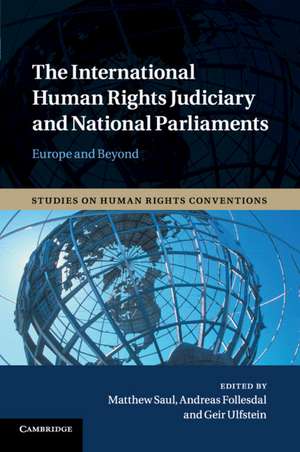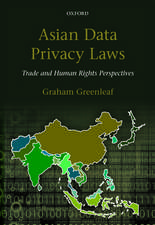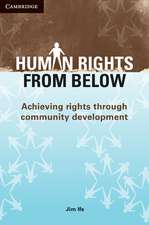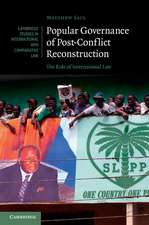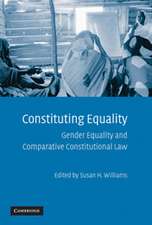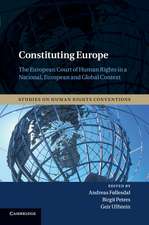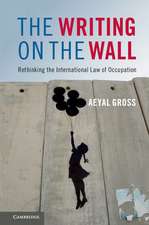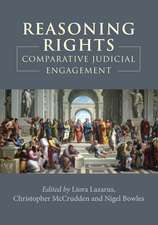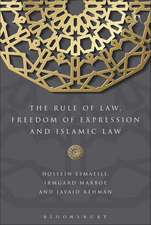The International Human Rights Judiciary and National Parliaments: Europe and Beyond: Studies on Human Rights Conventions, cartea 5
Editat de Matthew Saul, Andreas Follesdal, Geir Ulfsteinen Limba Engleză Paperback – 12 dec 2018
| Toate formatele și edițiile | Preț | Express |
|---|---|---|
| Paperback (1) | 323.43 lei 6-8 săpt. | |
| Cambridge University Press – 12 dec 2018 | 323.43 lei 6-8 săpt. | |
| Hardback (1) | 839.12 lei 6-8 săpt. | |
| Cambridge University Press – 11 oct 2017 | 839.12 lei 6-8 săpt. |
Preț: 323.43 lei
Nou
Puncte Express: 485
Preț estimativ în valută:
61.90€ • 67.21$ • 51.99£
61.90€ • 67.21$ • 51.99£
Carte tipărită la comandă
Livrare economică 22 aprilie-06 mai
Preluare comenzi: 021 569.72.76
Specificații
ISBN-13: 9781316635124
ISBN-10: 1316635120
Pagini: 415
Dimensiuni: 153 x 230 x 21 mm
Greutate: 0.55 kg
Editura: Cambridge University Press
Colecția Cambridge University Press
Seria Studies on Human Rights Conventions
Locul publicării:Cambridge, United Kingdom
ISBN-10: 1316635120
Pagini: 415
Dimensiuni: 153 x 230 x 21 mm
Greutate: 0.55 kg
Editura: Cambridge University Press
Colecția Cambridge University Press
Seria Studies on Human Rights Conventions
Locul publicării:Cambridge, United Kingdom
Cuprins
Introduction Matthew Saul, Andreas Follesdal and Geir Ulfstein; Part I. The Human Rights Role of Parliaments: 1. A transnational separation of powers? Geir Ulfstein; 2. Effective parliamentary oversight of human rights Kirsten Roberts Lyer and Philippa Webb; 3. Citizens' deliberation and human rights Jürg Steiner; Part II. The International Human Rights Judiciary in the Practice of Parliaments: 4. Parliaments as compliance partners in the European convention on human rights system Alice Donald; 5. Parliamentary interpretation and application of European human rights law Theresa Squatrito; Part III. National Parliaments in the Practice of the International Human Rights Judiciary: 6. How and when can the international human rights judiciary promote the human rights role of national parliaments? Matthew Saul; 7. Obligations to 'secure' the rights of the Convention in an 'effective political democracy': how should parliaments and domestic courts interact? Amrei Müller; 8. Shifting emergencies from the political to the legal sphere: placing the United Kingdom's derogations from the ECHR in historical context Colin Murray; 9. The role of the European Court of Human Rights in facilitating legislative change in cases of long-term delays in implementation Nino Tsereteli; 10. The Inter-American Court of Human Rights and the mobilisation of parliaments Leiv Marsteintredet; Part IV. Managing Relations between Parliaments and the International Human Rights Judiciary: 11. Democratic override (or rejection) and the authority of the Strasbourg court - the UK parliament and prisoner voting Ed Bates; 12. Saying 'no' to Strasbourg - when are national parliaments justified in refusing to give effect to judgments of international human rights courts? Colm O'Cinneide; 13. Law making by law breaking? A theory of parliamentary civil disobedience against international human rights courts Andreas Follesdal; 14. Conclusion: how does, could, and should the international human rights judiciary interact with national parliaments? Matthew Saul.
Descriere
Saul, Follesdal and Ulfstein examine in detail the interplay between national parliaments and the international human rights judiciary.
